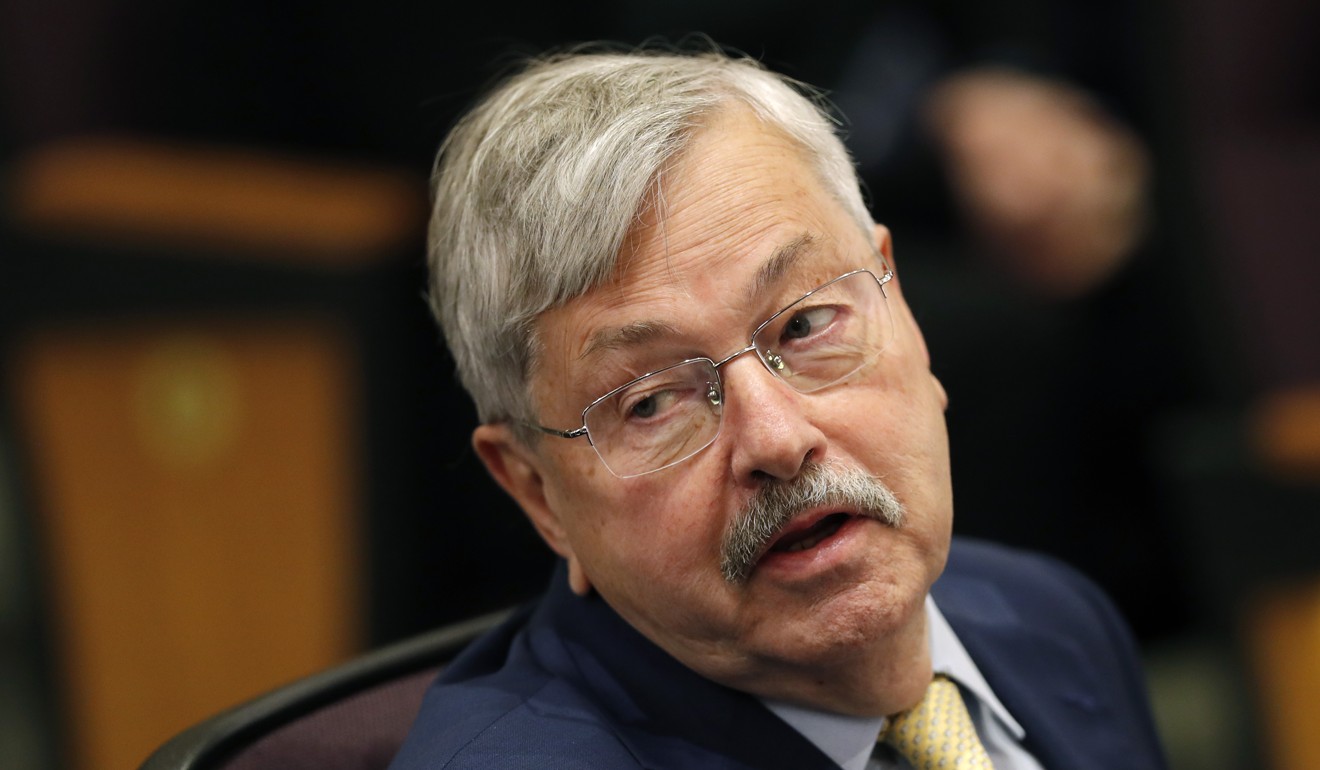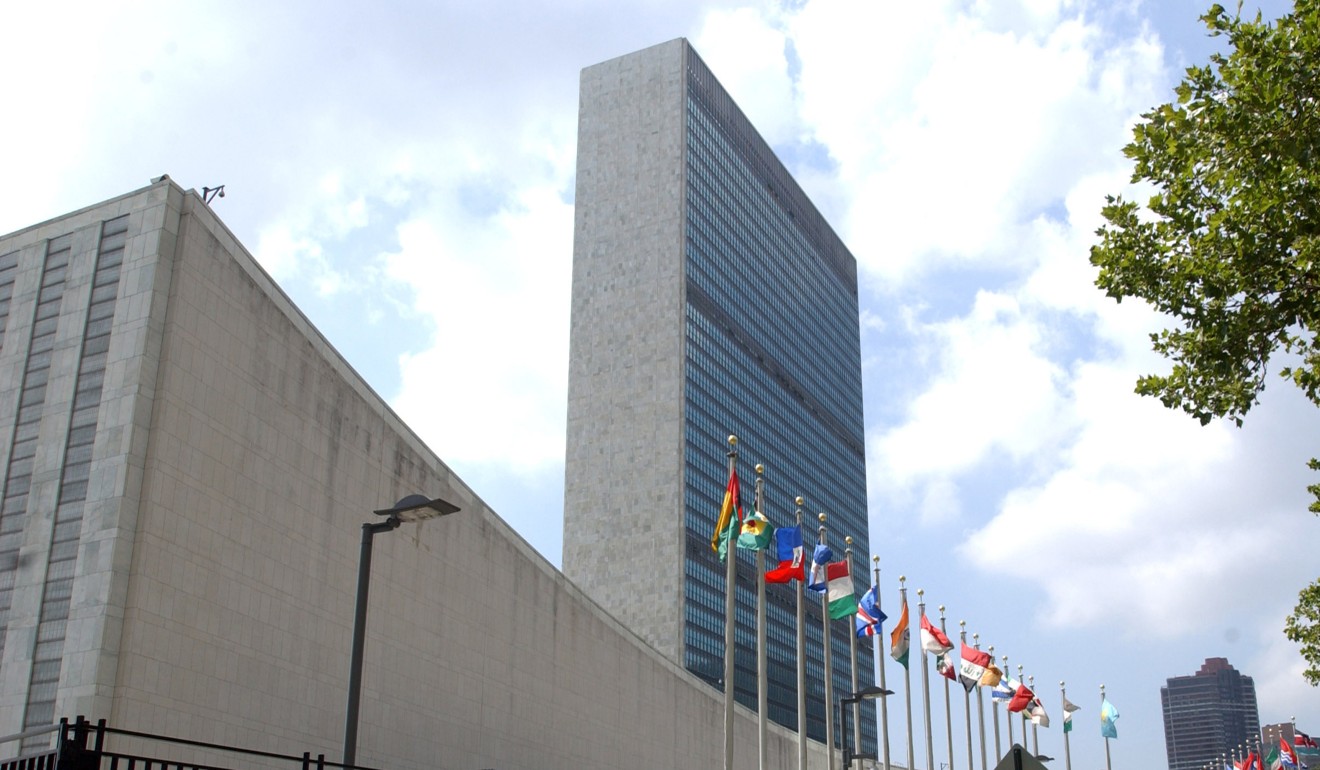
‘Preposterous’: China’s protests over new US diplomatic rules fall on deaf ears
- Chinese envoys must now give State Department five days’ advance notice of visits to state and local officials or research or educational institutions
- Beijing contends move violates Vienna Convention but is powerless to challenge it, an international law expert says
Chinese officials howled last week when the Trump administration – protesting alleged restrictions American envoys face in China – announced new rules to track the official activities of Chinese diplomats on US soil.
The Chinese embassy in Washington contended that the move was a violation of the Vienna Convention, the United Nations’ 1961 treaty governing diplomatic relations. And claims that US diplomats' movements in China were restricted were “simply not true”, the foreign ministry in Beijing asserted the next day, calling on Washington to withdraw its new rules.
Yet Beijing’s protests have fallen on deaf ears – not only among those in the current US administration, but also among former US diplomats who have spent years on the ground in China.
The new rules require Chinese diplomats to notify the US State Department in advance of meetings with state and local officials and visits to research and educational institutions. In a previously undisclosed detail, a State Department official said on Tuesday that, “notwithstanding emergency situations”, the Chinese foreign mission must submit such notifications five days prior to travel.
The change, officials said last week, was intended to dump a “paperwork burden” on the Chinese mission to the US – and thus force Beijing to relax its own restrictions on American diplomats in China that had stymied their ability to do their job for “many, many years”.
Beijing’s assertion that US emissaries are free to meet with whomever they please was “preposterous”, said James Green, a former State Department and trade official who in 2018 ended five years as Washington’s top trade representative at the US embassy in China.
Interaction with educational institutions, government agencies and even some private companies in China frequently require the involvement of the body’s foreign affairs office, which will relay requests to the foreign ministry, he said.
“There’s just a number of times in which a senior person like an ambassador would set something up and then the Chinese will call back and they’d say ‘bu fangbian’ – it’s ‘not convenient’ for that meeting to happen,” said Green, now a senior adviser on Chinese matters at McLarty Associates.
Beijing says US policy change violates international law
A US Senate subcommittee report released earlier this year cited more than 80 instances in recent years in which, the report found, the Chinese government had interfered in public diplomacy projects.
Citing internal State Department records, the report noted numerous occasions in which US officials were prevented from visiting cultural centres – including those wholly or partly funded by the US government itself. Some events that were to be hosted by or involving the US embassy were also cancelled.
In one instance dating from March 2018, a State Department official was refused a visit to a US cultural centre on grounds that the centre was “no longer in existence”. The official subsequently received confirmation from the centre's American director that it was still open and active, the report found.
In many instances, Chinese government officials gave no reason for the obstruction, according to the report.
Late last year, the US ambassador to China, Terry Branstad, was himself denied a visit to a State Department-funded cultural centre at a university in Henan, The New York Times reported.
“The truth is that we have a very open system and they have a very closed system,” he was reported as saying by Associated Press on Monday, after Beijing protested the new US requirements.

Moreover, the restrictive environment for US diplomats in China was not always the result of direct government intervention, according to Green, who said that Chinese researchers often showed a reluctance to speak candidly with US officials, particularly on matters deemed “sensitive”.
“There is a pervasiveness of fear in Chinese civil society [about] talking to American diplomats,” he said, adding that the foreign ministry “doesn’t do anything” to dissuade those concerns.
The Chinese government said last week it had lodged a formal complaint with the US government over the new requirements facing its envoys.
The State Department official said on Tuesday that the government expected Chinese officials to adhere to the new regulations, but would not say what – if any – punitive measures would be taken in cases of non-compliance. “Any failure to comply will be reviewed on a case-by-case basis,” the official said.
Central to Beijing’s protests is the claim that the new requirements violate Article 25 of the Vienna Convention on Diplomatic Law, which stipulates that the receiving state “shall accord full facilities for the performance of the functions of the mission”.
As Ronald Neumann, a former US official who served as Washington’s top envoy to Algeria, Bahrain and Afghanistan, noted, “Lawyers can have a field day on what is required for the performance of one’s mission”.
EU diplomats reject China’s offer of Xinjiang tour but are open to one later
Regardless, he said, Beijing had no leg to stand on in such matters.
“If there is any violation, the Chinese have been violating it for years,” said Neumann, now president of the American Academy of Diplomacy. “They demand permission – actual affirmative permission – rather than notification.”
John Quigley, an expert in diplomatic and consular law, acknowledged the requirement of notification five days in advance was a “serious impediment” to the function of China’s mission to the US.
“It still doesn’t prohibit meetings but it means it has to be something that’s organised well in advance,” said Quigley, professor emeritus of law at Ohio State University.
In its protests against the policy, noted Quigley, the Chinese government has not invoked stipulations within the Vienna Convention – named in Article 47 – that prohibit host states from discriminating between countries in their treatment of foreign diplomats.

But given that Article 47 does allow for discrimination when the receiving state’s own diplomats are subject to the same restrictions within the borders of the sending state – in this case, China – Quigley said it was possible that China was reluctant to highlight the clause for fear of increasing scrutiny of its own treatment of US diplomats.
In a bid to demonstrate its openness to foreign diplomats, the Chinese embassy said last week that the US enjoyed a surplus in personnel when it came to the two countries’ respective diplomatic corps, though it offered no figures to support the claim.
But when access is limited, body count alone is hardly a panacea, said Green, the former diplomat.
“You put an extra five people or 20 people or 25 people in the consulate in Guangzhou, you’re not getting 25 times more reporting,” he said. “You’re not getting 25 times more access to Chinese people in southern China.”
Was spy equipment behind US diplomats’ mystery illnesses in China?
The Chinese embassy in Washington did not respond to repeated inquiries about whether it intended to elevate its protest against the State Department’s new rules beyond its complaints.
But Beijing’s options to do so would be limited, said Quigley, given that claims pertaining to the Vienna Convention can only be settled at the International Court of Justice – and that depends on both parties being members of the convention’s optional protocol.
China has never been a member, and the US withdrew last year after Palestinians filed a complaint over Washington’s decision to move its embassy from Tel Aviv to Jerusalem.
“Effectively,” said Quigley, “there isn’t really any way [China] can get a ruling.”
Additional reporting by Robert Delaney.

